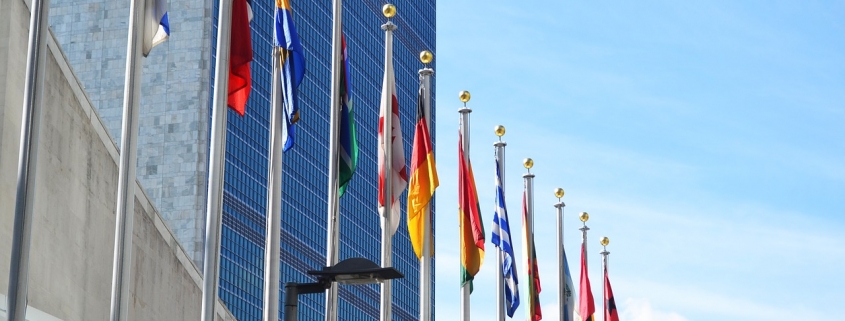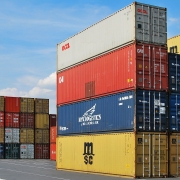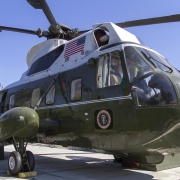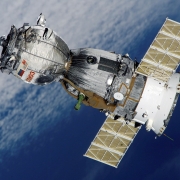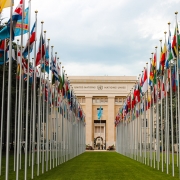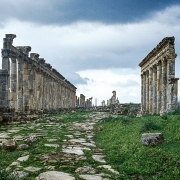What is the role of the United Nations Secretariat?
Role of the UN Secretariat
The Secretariat is one of the six main organs of the United Nations and is headed by the UN Secretary-General [UNSG].
The UNSG is described as the ‘de facto’ head’ of the international organization and acts as the ‘chief administrative officer’ as stated in Article 97 of the UN Charter.
Additionally, as outlined in Article 99, the UNSG has the responsibility of ‘[bringing] to the attention of the Security Council any matter which in his opinion may threaten the maintenance of international peace and security’.
Topic of Study [For H1/H2 History Students]:
Paper 1: Safeguarding International Peace and Security
Section B: Essay Writing
Theme III Chapter 2: Political Effectiveness of the UN in maintaining international peace and security
In the following part, we will examine the contributions of each UNSG during their respective terms in the period of 1945 to 2000.
1. [1946-1952] Trygve Lie
As the first official Secretary-General of the United Nations, he took the lead in managing various international issues, such as the Arab-Israeli conflict in 1948 and the Korean War in 1950. However, Lie was impeded by Cold War politics during the latter conflict.
Lie condemned the North Korean invasion and supported the US-led UN coalition that repelled the attacks. As such, Soviet Union perceived Lie as a pro-West, biased UNSG and blocked Lie’s reappointment. Eventually, Lie resigned from the UN.
2. [1953-1961] Dag Hammarskjöld
In contrast to Lie, Dag Hammarskjöld was looked up to by many as the role model for United Nations, given his outstanding contributions during his term.
First, Hammarskjöld’s negotiations with Chinese Premier Zhou Enlai had paid off as the latter agreed to release the American pilots, who were prisoners-of-war during the Korean War.
Second, Hammarskjöld oversaw the creation and deployment of the first-ever peacekeeping troops, known as the United Nations Emergency Forces [UNEF], that facilitated the withdrawal of foreign troops in Egypt during the Suez Canal Crisis of 1956.
Third, Hammarskjöld once again led the formation of the United Nations Operation in the Congo [ONUC] to deal with the Congo Crisis in 1960. He made sure that the ONUC comprised of ‘middle powers’ to circumvent great power politics that frequently caused political deadlock within the Security Council.
However, the UNSG died in a plane crash in 1961, causing the abrupt end to his illustrious career.
3. [1961-1966] U Thant
Following Hammarskjöld’s untimely death, U Thant was appointed to replace him. Although U Thant was recognised for his efforts in overseeing the management of Third World issues, given the growing membership in the 1960s [due to the decolonization of the Afro-Asian bloc], his achievements were marred by several failures.
After the Suez Canal Crisis, the UNEF I oversaw a ten-year transition period and was stationed in Egypt. Yet, U Thant quickly acceded to Egyptian president Nasser’s request to withdraw the UNEF I from Sinai, thus indirectly causing the start of the Six-Day War in 1967.
Furthermore, U Thant’s harsh criticisms towards American involvement in the Vietnam War proved detrimental to his role as the UNSG. In 1966, he put forward a three-stage proposal for conflict resolution. Yet, the US ignored and bypassed his efforts.
4. [1972-1981] Kurt Waldheim
The Austrian diplomat, Kurt Waldheim, played a significant administrative role during his term. Partially, his cautious approach to avoid being criticized or hindered by the Great Powers proved successful, as evidenced by his reappointment for the second term.
For example, Waldheim was successful in responding to the apartheid regime [institutionalized racial segregation] in South Africa and Namibia. His open statements towards the inhumane regime galvanized the General Assembly into action, as seen by the adoption of the Convention on the Suppression and Punishment of the Crime of Apartheid.
However, Waldheim proved to be unsuccessful in managing conflicts that involved Great Powers directly, especially the superpowers. For instance, Waldheim was hindered by Soviet Union during the Soviet-Afghan War in 1979.
5. [1982-1991] Javier Pérez de Cuéllar
The Peruvian diplomat, Javier Pérez de Cuéllar, was recognised for his successful efforts, partly due to the changing international climate. In the 1980s, the Cold War continued to be a hindrance as observed by the lack of progress during the 1980 Iran-Iraq War. Likewise, the US-backed proxy conflicts in Central America, such as Nicaragua, were problematic as US constantly relied on the use or threat of veto to block de Cuéllar’s diplomatic efforts.
Fortunately, in the late 1980s and early 1990s, the end of the Cold War proved fortuitous for him as the superpowers became more supportive of UN efforts.
For example, the UNSG was now able to set up the United Nations Good Offices Mission in Afghanistan and Pakistan [UNGOMAP] to facilitate the withdrawal of Soviet forces in Afghanistan. Clearly, this was a stark contrast as compared to his predecessor’s time.
6. [1992-1996] Boutros Boutros-Ghali
In the post-Cold War period, Boutros-Ghali contributed to several noteworthy successes. During the Vietnamese invasion of Cambodia [1978-1993], he oversaw the deployment of the United Nations Transitional Authority in Cambodia [UNTAC] to facilitate a smooth political transition, such as the monitoring of elections.
However, Boutros-Ghali also encountered failures, such as the Somali Civil War [1992] and Rwandan Genocide [1993]. For example, unfavourable local conditions led to the departure of UN forces in Somalia, resulting in the failed attempts to provide humanitarian assistance to the civilians.
7. [1997-2006] Kofi Annan
Kofi Annan explored other roles besides the monitoring of peacekeeping missions, as observed by his pursuit of structural changes within the United Nations.
For example, Annan engaged in UN reforms to overcome structural issues through the ‘Responsibility to Protect’ [R2P] framework. Also, he advocated the pursuit of the Millennium Development Goals, which covered objectives like the proliferation of education, gender equality and poverty reduction.
What can we learn from this case study?
Consider the following questions to understand the case study:
– How far do you agree that Cold War rivalry was the greatest obstacle in affecting the effectiveness of the UN Security Council? [to be discussed in class]
Apart from analyzing various case studies in this broad and vast theme on the United Nations, you can also join our JC History Tuition to assess your knowledge application skills. We teach students to think critically and write persuasively. Furthermore, we use different teaching approaches to engage students as they learn to grasp concepts effectively.
The H2 and H1 History Tuition feature online discussion and writing practices to enhance your knowledge application skills. Get useful study notes and clarify your doubts on the subject with the tutor. You can also follow our Telegram Channel to get useful updates.
We have other JC tuition classes, such as JC Math Tuition and JC Chemistry Tuition. For Secondary Tuition, we provide Secondary English Tuition, Secondary Math tuition, Secondary Chemistry Tuition, Social Studies Tuition, Geography, History Tuition and Secondary Economics Tuition. For Primary Tuition, we have Primary English, Math and Science Tuition. Call 9658 5789 to find out more.

